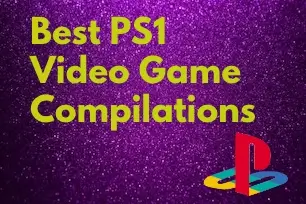The Shin Megami Tensei Persona Video Game Series has captivated gamers worldwide, including you! These games blend elements of dungeon crawling RPGs with rich social simulation gameplay, creating an extraordinary experience.
Why Persona's Social System Matters – TL;DR
- Persona games combine dungeon crawling RPG combat with social simulation mechanics.
- Social Links enhance your combat power and story immersion through relationship building.
- The system rewards time management, emotional investment, and strategic partner choices.
- Unlike morality systems, Persona focuses on connection over ethical judgment.
- Persona 4 and 5 refined this formula with deeper Confidants and branching relationship paths.
Atlus, the developer, has crafted a special mix of engaging stories and character growth. You navigate both fantastical dungeons and the everyday lives of high school students in Japan.
In this article, you'll explore why Persona video games are so damn good!. From the engaging combat systems to impactful social bonds, there’s much to discuss. Join us as you delve into what makes these games stand out in the crowded RPG landscape.
The Table of Contents
What Are Dungeon Crawling RPGs in Persona Games?
Dungeon crawling is a subgenre of role-playing games (RPGs) characterized by your exploration of dungeons, often filled with monsters, traps, and treasures. You usually lead your character through complex areas, fighting enemies in both turn-based and real-time combat. Along the way, you will also deal with puzzles and traps.
Your main goal is to defeat strong bosses, finish quests, and collect loot. This loot includes weapons, armor, and items that enhance your character's skills and abilities.
In dungeon crawling RPGs, you usually team up with others. You can choose different character classes, like mages, warriors, and healers. This helps you build strong strategies for combat. When you defeat enemies and solve puzzles, your character earns experience points. This helps them improve by learning new skills, gaining abilities, and getting upgrades as they advance.
This part of the game focuses on exploring, fighting, and collecting items. It is different from other parts like storytelling or interacting with characters, but it still offers an exciting and fun experience that many role-playing fans enjoy.
Dungeon crawling RPGs make you think carefully and give you a sense of accomplishment as you explore and develop your character.
How Social Links Enhance Persona's Combat and Story
Simulation Gameplay and Free Time Mechanics
In these persona video games, the gameplay mechanics center around party-based combat 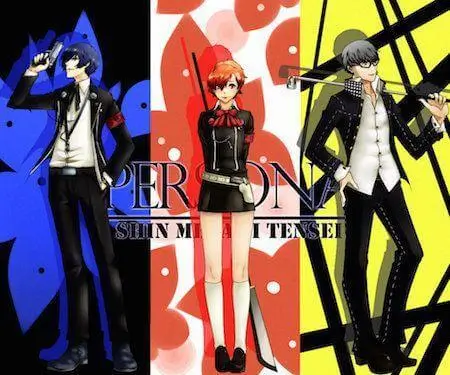 during level-grinding dungeons, but the other half of the gameplay makes each Persona video games unique.
during level-grinding dungeons, but the other half of the gameplay makes each Persona video games unique.
Each game is divided almost evenly between dungeon combat and experiencing a year in the daily life of high school students in Japan, including occasionally answering questions in school.
You control the protagonist to decide how to spend your free time—spending moments with friends, potential girlfriends (all playable relationships are heterosexual, and only Persona 3 Portable on PSP offers a female protagonist), or local residents by eating out or engaging in activities like studying or part-time jobs.
Tarot Cards and Persona Power
This part of the game belongs to a genre that is more popular in Japan than in North America. It is called simulation games, which mimic different parts of real life.
In Persona video games, the simulation portion strategically affects your combat capabilities through the signature "Social Link" mechanic. While these links focus on relationships, not ethics, it's worth comparing them to traditional morality systems in video games, where choices often reflect good or evil paths rather than emotional bonds.
When you spend time with local residents, you enhance different cards in the Tarot deck. These cards represent various types of personas. They act as avatars to help you in battles inside dungeons.
Persona Social Links in Action: Tarot Cards, Character Arcs & Team Synergy
Strengthening Relationships and Arcana Types
The more time you spend building a social link, the stronger your relationships will be. This will give you more power from that kind of persona. In Persona 4, you can increase the "Death" arcana by talking to an old woman by the river. She is sad about her husband's death.
You can enhance the "Hermit" arcana by helping a magical fox respond to prayers at a Shinto shrine. To boost the "Priestess" arcana, you should build a friendship with Yukiko, a classmate who acts as the main healer in the game.
Character Growth Through Social Bonds
Building these social connections allows you to use stronger personas from the related arcana. In Persona 4, this also helps your teammates learn important combat skills (like taking a mortal blow for you, thus avoiding a game over) and achieve their personas' evolved states.
The mix of social simulation and RPG elements shows how important relationships are in the Persona video game series.
Player Choice in Persona Games: Social Sim Meets Strategy
Maxing Social Links and Balancing Combat
Social simulation games and classic role-playing games (RPGs) have links that offer you interesting choices as a player. Player choices can greatly influence your gaming experience. 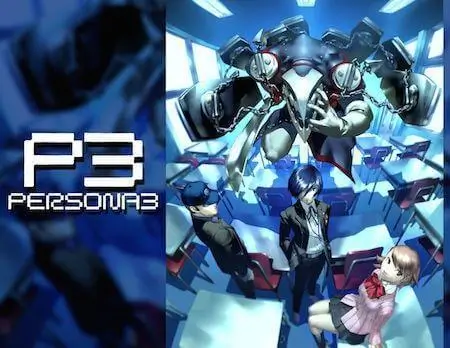 You can choose to focus on friendships that provide interesting stories or ones that improve your combat skills.
You can choose to focus on friendships that provide interesting stories or ones that improve your combat skills.
You can max out all social bonds in one playthrough, but that requires dedication and perhaps following an online guide (many players find they have a few links they didn't have time to max out).
If you want to enjoy both stories and fighting, you can pick social links that give you a great story or ones that help you in battle. It depends on how you like to play. Balancing the two can improve your gameplay experience.
Meaning and Message Behind Social Play
The game's main message highlights the importance of strong social relationships. These connections help players face tough final enemies that symbolize the darker aspects of human nature. The game suggests that socializing can help manage these challenges.
The simulation parts of Persona video games are interesting in their own right. Most games focus on fighting, but few focus on social relationships. This is because it is harder to set rules for relationships than for fighting. Physics has clear rules, but love and friendship are murkier.
Dating, Friendships & Realism in Persona’s Social Simulation Gameplay
True Bonds and Relationship Maintenance
It’s not surprising that some social simulation games like the Persona video game series do have flaws. These imperfections are part of what makes them interesting. If you juggle two different girlfriends in the game and they find out, you could face some consequences, which adds realism.
Once you have fully built your relationship with a girl, you can start a new relationship without any problems. You don't need to keep spending time with the first girl to keep your relationship strong or your power at the highest level.
Achieving a "true bond" means your maxed social link requires no further maintenance. As a result, the game prompts you to concentrate on one relationship at a time. Managing several romantic relationships can be difficult, especially if many of them are part of your team. This showcases the complexity of character relationships. Keeping their arcana at low levels can make battles much harder.
This flaw in Atlus's social relationships model may seem absurd (many players have had multiple maxed romantic relationships by the end of a playthrough), but it offers a reflection on the complexities of human interactions, both in real life and gaming.
How Persona 4 Evolved Social Simulation in RPGs
More Nuanced Relationship Outcomes
Persona 4 made significant updates to improve its social simulation system. For instance, it 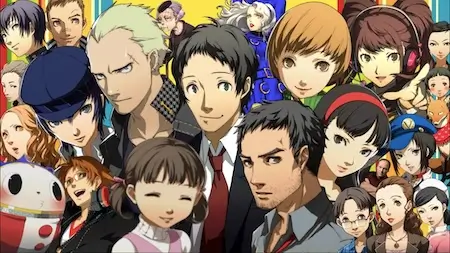 includes potentially romantic relationships that can fail (but still allow for maxed-out friend links) if you pursue a romantic relationship too quickly while a girl is still getting over someone else. This showcases nuanced character interactions.
includes potentially romantic relationships that can fail (but still allow for maxed-out friend links) if you pursue a romantic relationship too quickly while a girl is still getting over someone else. This showcases nuanced character interactions.
This relationship has special middle stages and different possible endings.
Deeper Social Complexity
This is unlike most RPGs, where relationships usually grow closer as time goes on. In those games, a setback happens only if you choose the wrong dialogue options.
Persona 4 also introduced more intricate relationship dynamics. Some characters have complicated love stories, requiring players to navigate through various emotional stages. This added complexity enhances the social simulation games aspect and mirrors real-life relationships.
A new feature in social simulation games, which wasn't in previous Persona games, is the way your choices influence social links. In Persona 4, players deal with relationships that can create issues or lead to breakups, which is different from earlier games.
In prior games, once strong relationships were established, they required minimal maintenance. This mechanic encourages players like you to think carefully about your actions and the resulting outcomes.
Persona 4 also emphasizes interactions with a broader range of characters, including non-playable characters (NPCs). Your interactions with these characters help you understand social situations more clearly, adding depth to the story.
IGN called Persona 4 “a beautifully constructed RPG” and praised its deep character development, stating that "each member of your party has a distinct personality, making the social aspects as compelling as the combat." [IGN Review]
Persona 5 and the Pinnacle of RPG Social Simulation
Time Management and Confidants
You might agree that Persona 5 is likely the most popular title in the series. It offers deeper character interactions with a broader range of social links, known as "Confidants." Each Confidant 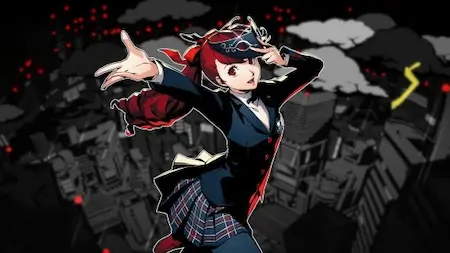 has their own story that helps them grow and provides you with advantages in the game.
has their own story that helps them grow and provides you with advantages in the game.
This complexity offers a deeper experience as you interact with different personalities.
Persona 5 introduces a more refined time management system, requiring you to strategically plan your days. As a player, you must choose how to use your time wisely.
Activities That Boost Relationships
You can explore dungeons, meet other characters, or take part in different activities. This introduces new challenges and choices that were not present in earlier games.
The dialogues are often more dynamic, featuring multiple options that affect relationships in real time. Now, your activities can directly impact your social links, encompassing sports, cultural events, and part-time jobs.
These activities offer different ways to engage with the game's social parts, enhancing your connection to the story. Together, these improvements make the social simulation model in Persona 5 more intricate and integrated than in its predecessors, contributing to a captivating experience. Completing Persona 5 can take you between 60 to over 120 hours, depending on your exploration and engagement level.
- In their review of Persona 5 Royal, GameSpot praised the game's emotional depth, writing that "Persona 5 Royal is many things: a great RPG, an exciting heist story, and an emotional journey filled with characters that feel like real friends." [GameSpot Review]
Are Persona Games Worth It? Why Fans Love the Series
You might find that trying out the Persona Series (if you don't mind some dungeon crawling RPGs) is a fantastic recommendation for fans of Japanese video games. It offers an intriguing mix of RPG mechanics and social simulation games gameplay. Persona 4 is well-known and remains one of the most popular PS2 games, even into the 2020s.
This shows its lasting popularity and influence on the gaming community. This mix offers interesting ways to look at the social side of gaming and real life. Strong relationships can help characters grow and make your gaming experience more enjoyable.
Remember the original titles in the series: Persona Revelations, Persona 2: Eternal Punishment, and Persona 4 Golden for the PS Vita, which are all significant entries in the persona video game series. These games helped establish the great storytelling and character relationships seen in the newer installments.
Where to Sell Persona Games and Classic Dungeon Crawlers for Cash

Are you looking to part ways with your classic gaming collection? Look no further than The Old School Game Vault, the best place for you to sell vintage video games.
Our online marketplace is designed for gamers and collectors who value retro games and rare items.
The Old School Game Vault offers fair prices and a simple process for trading in games. This way, you can get the value you deserve for your classic favorites. If you own original cartridges, classic consoles, or rare collectibles, they'll as find a home.
Frequently Asked Questions:
What kind of games are the Persona games?
- Dungeon crawling RPGs with social simulation elements.
What order should I play the Persona games in?
- Any order works; each main game is standalone.
Should I play Persona 5 before watching the anime?
- Yes, the anime follows the game plot.
Will there be a Persona 6?
- Yes, it’s currently in development.
What is the hardest Persona game?
- Persona 3 FES.
What is a dungeon crawling RPG?
- An RPG focused on exploring dungeons, fighting monsters, and collecting loot.
Are all the Persona games set in the same world?
- Yes, they share a connected universe.
What Persona games are not canon?
- Spin-offs like Persona Q, Arena, and Dancing.
Where is Persona 3 set in the real world?
- A fictional city inspired by urban Japan.
What is the easiest Persona game?
- Persona 5 Royal.






